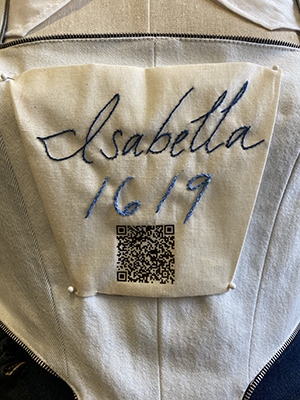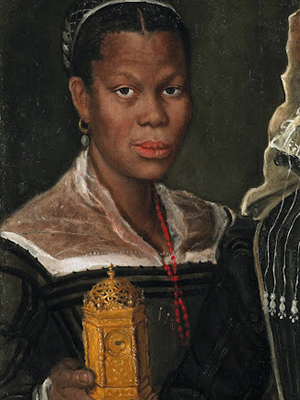Isabella
In his seminal book "Before the Mayflower: A History of Black America," Lerone Bennett Jr. wrote:
A year before the arrival of the celebrated Mayflower, 113 years before the birth of George Washington… this ship sailed into the harbor at Jamestown, Virginia, and dropped anchor into the muddy waters of history. It was clear to the men who received this “Dutch Man of War” that she was no ordinary vessel. What seems unusual today is that no one sensed how extraordinary she really was. For few ships before or since, have unloaded a more momentous cargo.
 LaNiyah Grovell ’27
LaNiyah Grovell ’27
In August of 1619, English pirates landed in Jamestown and sold twenty to thirty enslaved people, kidnapped them from a Portuguese ship that had sailed from Angola, to the colonists there. These Africans were the first of more than 12.5 million people to be violently taken from their homes in “the largest forced migration in human history until the Second World War.” Among those who landed that day was a woman named Isabella, who later gave birth to William, the first African-American.
The history of the United States cannot be separated from the history of slavery. In the preface to the report “Teaching Hard History” for the Southern Poverty Law Center, Hasan Kwame Jeffries stated, “Schools are not adequately teaching the history of American slavery, educators are not sufficiently prepared to teach it, textbooks do not have enough material about it, and – as a result – students lack a basic knowledge of the important role it played in shaping the United States and the impact it continues to have on race relations in America.”
This Renaissance-style dress was built entirely out of recycled jeans and zippers by Brandeis students to honor the memory of Isabella’s life.
Sources
- Lerone Bennett Jr., Before the Mayflower: A History of Black America, 1619 - 1962. Johnson Publishing Company, 1962
- Nikole Hannah-Jones, Caitlin Roper, Elena Silverman, Jake Silverstein, editors. The 1619 Project: A New Origin Story. Penguin Random House, 2021
- Teaching Hard History
